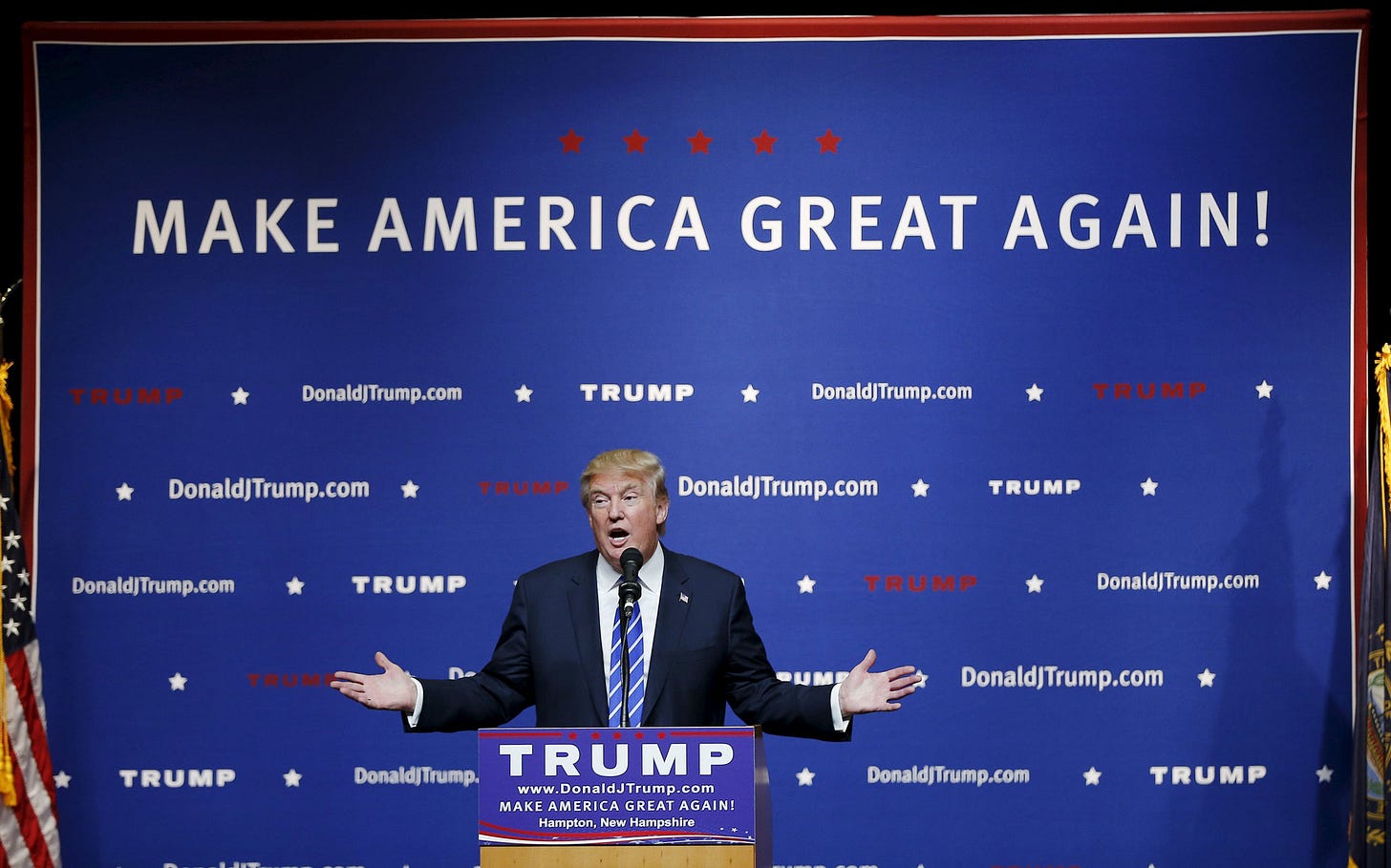
It’s safe to say we have entered a period of “policy entrepreneurship.” That’s when candidates, in this case candidates for the Democratic Party’s 2020 nomination, compete with each other for attention, money and resources by offering ideas that expand spheres of influence to include people with weak party attachments. By giving voters clear and competing choices, candidates hope to grow their bases of power.
Policy entrepreneurship is one way of explaining the appearance of policies that never would have gotten attention in 2016. These include taxing capital gains, trust-busting, reparations for slavery, and decriminalizing border crossings; not to mention liberal remedies to climate change, gun violence, and health care. Since 2000, Democratic candidates have gone from crowding around the middle to pushing the policy envelope. It’s early yet, but it’s worth noting this is the most liberal, and the most exciting, range of policy entrepreneurship that I have seen in my lifetime.
Another explanation, complementary to policy entrepreneurship, is more pragmatic. The Democrats seem unconcerned about Republican voters. They stopped caring what the other side thinks. As the Monthly’s Nancy LeTourneau put it, this is a turning point in party history, one that may stem from lessons learned from “watching the entire right wing propaganda machine mischaracterize anything they ever put on the table for consideration. As a result, almost every policy proposal we’ve seen so far—whether you agree with it or not—has been direct, clear, and authentically articulated.”
Democratic candidates appear to have stopped caring what Republicans think of their policy ideas. Good.
Nancy is right. Barack Obama offered a conservative health care policy believing he’d get GOP support. He didn’t. He endorsed select features of “entitlement reform” to entice Republicans to work with him on immigration reform. They said take a hike. He nominated Judge Merrick Garland to the United States Supreme Court on the advice of conservatives who admired Garland’s centrist jurisprudence. Republicans then sabotaged his confirmation. That a new field of Democrats has stopped caring what Republicans think of their policies is entirely reasonable. Why care when they didn’t?
Some worry the Democrats are moving too far left, but “concern trolls,” as they’re called, tend to forget two things. One, the Republicans bombed the foundations of bipartisan policy-making. The other side no longer has grounds for trust. Two, there is no counterweight to Democratic proposals, whether those proposals are liberal or not. The president either prosecutes policies that are transparently evil, like separating children from their mothers at the border, or offers none at all. There’s no there there. The Democratic candidates are offering substance, a there that’s actually there.
Threats are Donald Trump’s policies. He can’t stop border crossings, so he threatened to close the southern border four times since October. He walked back each threat, usually under pressure from Senate Republicans who know closing the border would be a disaster. Other threats, according to a summary in the Times, include: warning Russia to stay out of Venezuela; telling GM to reopen a plant in Ohio; vowing to repeal constitutional “birthright” citizenship; promising to rescind California’s disaster relief funds; and warning James Comey to keep quiet or he’ll release secretly recorded tapes. In each of these, Trump either didn’t follow up, was ignored entirely or was boxed in by the bureaucracy. The weakest president in our history is getting even weaker.
Yet his base remains strong. Why? Because policies don’t matter. Gesture and symbol—these matter most. The magic words affirm what Republican supporters believe true about the natural order, which is to say who’s in, who’s out, and who’s in charge. Trump can say whatever he wants, whenever he wants, for whatever reason he wants as long he’s the president. That Trump is regularly ridiculed, ignored, defeated or humiliated is besides the point. The point isn’t real power. The point is tribe.
As a result, Democrats are free to widen the scope of policy debate in their own way and on their own time, because what’s the alternative? Evil policy or none at all.
—John Stoehr

IN CASE YOU MISSED IT
MONDAY
Trump Can't Change for the Better (membership req’d)
Time will tell if that matters in 2020.
TUESDAY
How Fox Warps Political Reality (membership req’d)
The Democrats face more than Donald Trump.
WEDNESDAY
Dems (Finally) Rethinking Joe (membership req’d)
How party elites are telling a party elder not to run.
THURSDAY
Barr Loses Benefit of the Doubt (membership req’d)
Can you trust a president you already think unfit?
FRIDAY
Women Are Explaining (public)
Unthinkable that Democrats would turn back now.

Email this newsletter to a friend!
And ask them to join us as a member of the Editorial Board!


